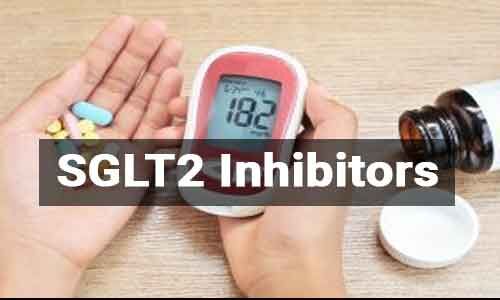- Home
- Medical news & Guidelines
- Anesthesiology
- Cardiology and CTVS
- Critical Care
- Dentistry
- Dermatology
- Diabetes and Endocrinology
- ENT
- Gastroenterology
- Medicine
- Nephrology
- Neurology
- Obstretics-Gynaecology
- Oncology
- Ophthalmology
- Orthopaedics
- Pediatrics-Neonatology
- Psychiatry
- Pulmonology
- Radiology
- Surgery
- Urology
- Laboratory Medicine
- Diet
- Nursing
- Paramedical
- Physiotherapy
- Health news
- Fact Check
- Bone Health Fact Check
- Brain Health Fact Check
- Cancer Related Fact Check
- Child Care Fact Check
- Dental and oral health fact check
- Diabetes and metabolic health fact check
- Diet and Nutrition Fact Check
- Eye and ENT Care Fact Check
- Fitness fact check
- Gut health fact check
- Heart health fact check
- Kidney health fact check
- Medical education fact check
- Men's health fact check
- Respiratory fact check
- Skin and hair care fact check
- Vaccine and Immunization fact check
- Women's health fact check
- AYUSH
- State News
- Andaman and Nicobar Islands
- Andhra Pradesh
- Arunachal Pradesh
- Assam
- Bihar
- Chandigarh
- Chattisgarh
- Dadra and Nagar Haveli
- Daman and Diu
- Delhi
- Goa
- Gujarat
- Haryana
- Himachal Pradesh
- Jammu & Kashmir
- Jharkhand
- Karnataka
- Kerala
- Ladakh
- Lakshadweep
- Madhya Pradesh
- Maharashtra
- Manipur
- Meghalaya
- Mizoram
- Nagaland
- Odisha
- Puducherry
- Punjab
- Rajasthan
- Sikkim
- Tamil Nadu
- Telangana
- Tripura
- Uttar Pradesh
- Uttrakhand
- West Bengal
- Medical Education
- Industry
SGLT2 inhibitors may protect diabetics against serious kidney problems

Use of sodium glucose cotransporter 2 (SGLT2) inhibitors to treat type 2 diabetes may help to lower the risk of serious kidney problems, finds a study published by The BMJ today.
The findings provide further support for the use of SGLT2 in a broad range of patients with type 2 diabetes.
Type 2 diabetes is the leading cause of kidney failure. Clinical trials have shown that SGLT2 inhibitors protect kidney (renal) function among patients with type 2 diabetes, but their effect on serious renal events in patients in "real-world" clinical practice remains uncertain.
So an international team of researchers set out to assess the association between use of SGLT2 inhibitors and risk of serious renal events using data from routine clinical practice.
They used nationwide register data from Sweden, Denmark, and Norway from 2013-18 to compare use of SGLT2 inhibitors with another group of diabetes drugs called dipeptidyl peptidase-4 (DPP-4) inhibitors.
Prescription data was used to identify 29,887 new users of SGLT2 inhibitors and 29,887 new users of dipeptidyl peptidase-4 inhibitors (average age 61 years).
Hospital records and death statistics were used to track serious renal events for an average of two years. These included renal replacement therapy, death from renal causes, and hospital admission for renal events.
The researchers found that compared with DPP-4 inhibitors, use of SGLT2 inhibitors was associated with a reduced risk of serious renal events (2.6 events per 1000 person years versus 6.2 events per 1000 person years).
This equates to a difference of 3.6 fewer events per 1000 person-years or a 58% lower relative risk of serious renal events with SGLT2 inhibitors.
Further analysis found greater risk reduction in patients with underlying cardiovascular disease and chronic kidney disease (CKD).
This is an observational study, so can't establish cause, and the researchers point to some study limitations, such as relying on prescription data and hospital records, which may have affected the accuracy of their results.
What's more, because the study was conducted in Scandinavia, findings may not apply to other populations and healthcare systems.
However, they say that in this analysis using nationwide data from three countries, use of SGLT2 inhibitors, compared with DPP-4 inhibitors, was associated with a significantly reduced risk of serious renal events.
These findings complement the results of previous randomised trials, suggesting that SGLT2 inhibitors may lower the risk of serious renal events in routine clinical practice, they conclude.
The results from this well designed study are consistent with previous research and add new evidence that SGLT2 inhibitors seem preferable to DPP-4 inhibitors in patients at risk of developing or worsening kidney disease, says Steven Smith at the University of Florida, in a linked editorial.
Despite this study's strengths there are some reasons for caution in interpreting the results, he writes.
Additional trials in real world settings and more diverse populations "could add further support for broader access to these drugs, not just in high income countries, but also in lower income countries where the burden of kidney disease is disproportionately high," he concludes.
In an analysis article also published today, researchers point out that SGLT2 inhibitors have received several serious safety warnings since approval, but the number, timeliness, and strength of these safety communications have differed between American, Australian, Canadian, and European regulators.
They call for greater transparency in decision making to help increase the accountability of both regulators and industry and allow more informed treatment choices to be made.
For more details click on the link: http://dx.doi.org/10.1136/bmj.m1186
Hina Zahid Joined Medical Dialogue in 2017 with a passion to work as a Reporter. She coordinates with various national and international journals and association and covers all the stories related to Medical guidelines, Medical Journals, rare medical surgeries as well as all the updates in the medical field. Email: editorial@medicaldialogues.in. Contact no. 011-43720751
Dr Kamal Kant Kohli-MBBS, DTCD- a chest specialist with more than 30 years of practice and a flair for writing clinical articles, Dr Kamal Kant Kohli joined Medical Dialogues as a Chief Editor of Medical News. Besides writing articles, as an editor, he proofreads and verifies all the medical content published on Medical Dialogues including those coming from journals, studies,medical conferences,guidelines etc. Email: drkohli@medicaldialogues.in. Contact no. 011-43720751


